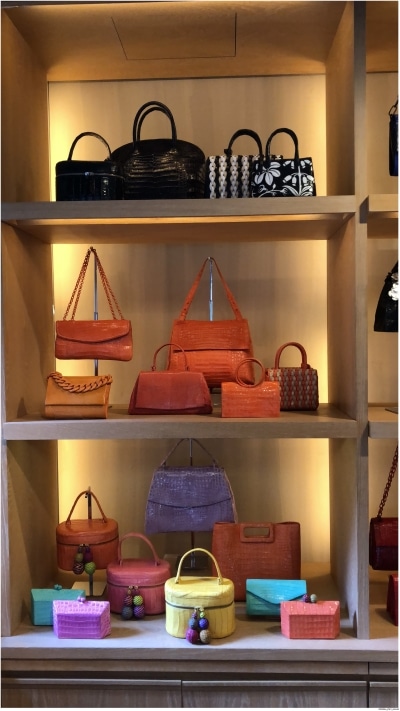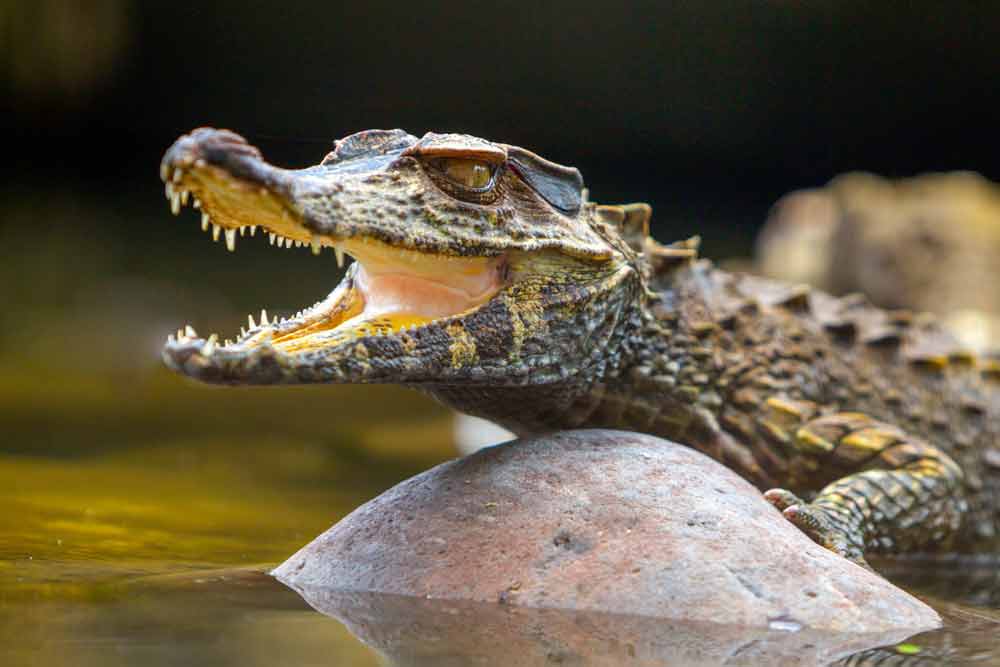The founder was found guilty of illegally importing handbags and other merchandise that were made from the skins of protected pythons and caimans, according to a U.S. Department of Justice
Nancy Teresa Gonzalez de Barberi and her associate Mauricio Giraldo were sentenced to prison April 22 for illegally importing handbags and other merchandise that were made from the skins of protected pythons and caimans, according to a U.S. Department of Justice press release. Gonzalez de Barberi’s handbag company, Gzuniga, was also ordered to forfeit all handbags and other products that were seized by the government.
The company was also banned from any activities involving the commercial trade in wildlife for three years and is sentenced to three years probation. Gonzalez de Barberi was sentenced to 18 months in prison with credit for the time she served in a Colombian prison. Her associate was sentenced to time served, supervised release for three years and must pay a special assessment to the government. A third co-conspirator, John Camilo Aguilar Jaramillo, pleaded guilty and will be sentenced June 27.

Photo is of handbags designed by Nancy Gonzalez and displayed in the Gzuniga Ltd. showroom. Photo is from Exhibit 3 to the government’s reply to objections to presentence report and sentencing memorandum in United States v. Gzuniga Ltd., et al., case number 22-CR-20170
Both the caiman and python species used in the production of these handbags are protected by the Convention on International Trade in Endangered Species of Wild Fauna and Flora (CITES). Both the United States and Columbia are signatories.
Gzuniga, Gonzalez, Giraldo and Jaramillo were indicted with one count of conspiracy and two counts of smuggling. From February 2016 to April 2019, the indicted illegally imported designer handbags made from caiman and python skin, according to the U.S. Department of Justice.
“The United States signed on to CITES in an effort to help protect threatened and endangered species here and abroad from trafficking,” Assistant Attorney General Todd Kim of the Justice Department’s Environment and Natural Resources Division said in a press release announcing the sentencings. “We will not tolerate illegal smuggling. We appreciate the efforts of our many federal and international partners who have helped with the investigation, extradition and prosecution of this case.”
“The United States, in company with the international community, has established a system for overseeing the trafficking in protected species of wildlife. That system relies on a system of permits and oversight by many agencies and demands strict compliance by all those engaged in such trade,” U.S. Attorney Markenzy Lapointe for the Southern District of Florida said. “The press of business, production deadlines or other economic factors are not justification for anyone to knowingly flout the system and attempt to write their own exceptions to wildlife trafficking laws. In cooperation with our international partners, our Office will continue to require strict adherence to laws that protect our endangered species.”
Gucci Fashion Execs Attend CITES Conference To Drum Up Support For Python Skin Tracking
Crocodilian Blood Successful for HIV Treatments and Antibiotics
“The U.S. Fish and Wildlife Service is deeply committed to combatting wildlife trafficking in all its forms. The Gonzalez case underscores the importance of robust collaboration with federal and international partners to disrupt illegal wildlife trade networks,” said Assistant Director Edward Grace of the U.S. Fish and Wildlife Service’s (USFWS) Office of Law Enforcement. “This investigation uncovered a multi-year scheme that involved paid couriers smuggling undeclared handbags made of CITES-protected reptile skins into the U.S. to be sold for thousands of dollars. The Service will continue to seek justice for protected species exploited for profit, and we will hold accountable those who seek to circumvent international controls meant to regulate their sustainable trade.”
The species were not fully identified in the press release. Six different species of caiman live in Central and South America.


